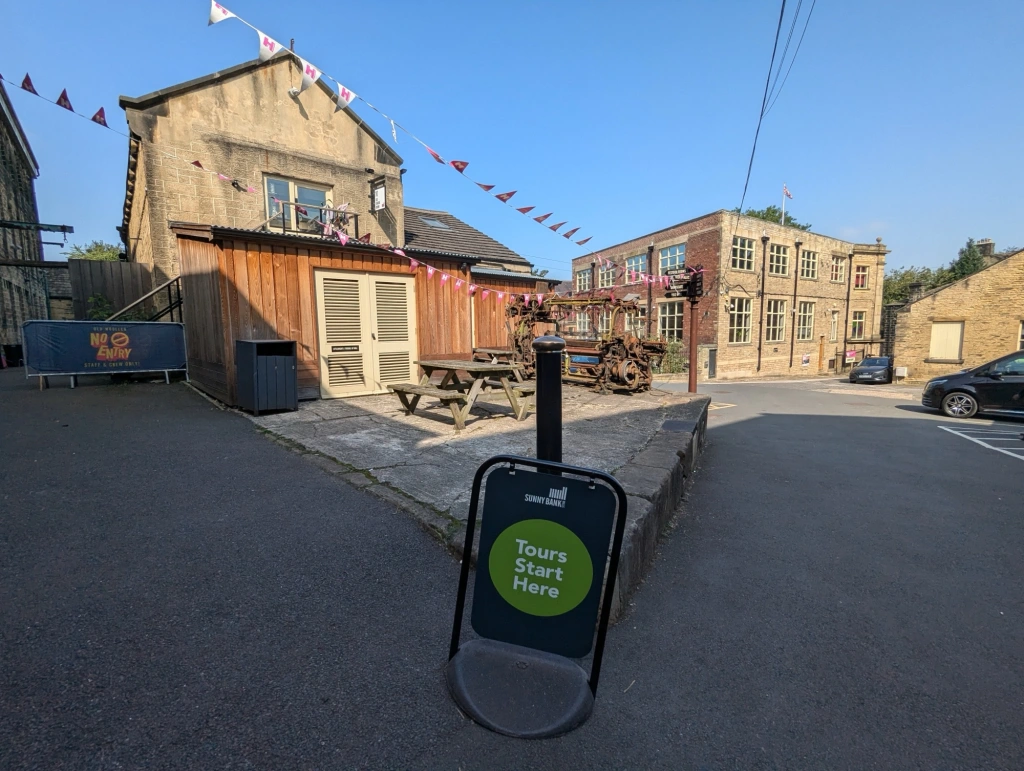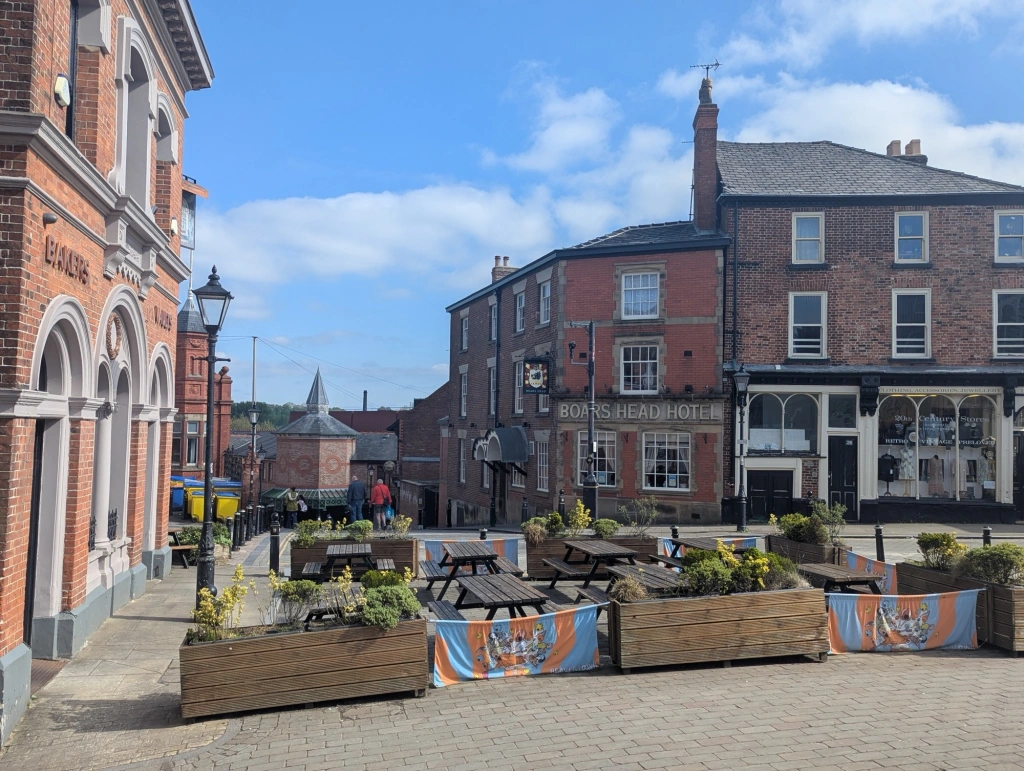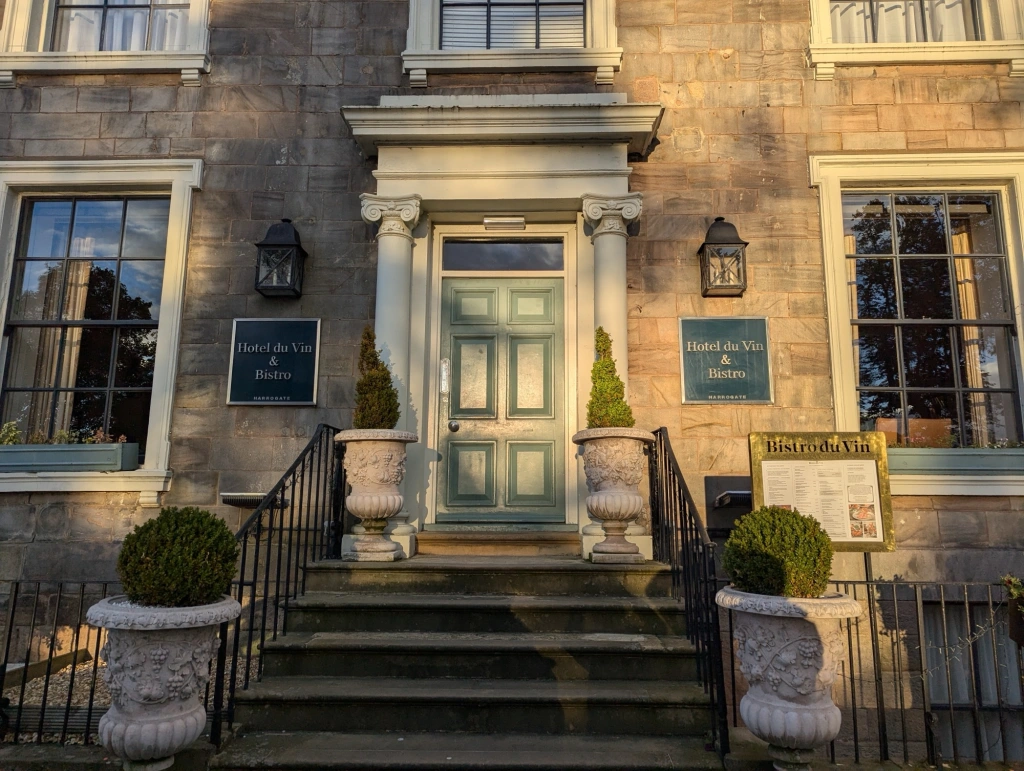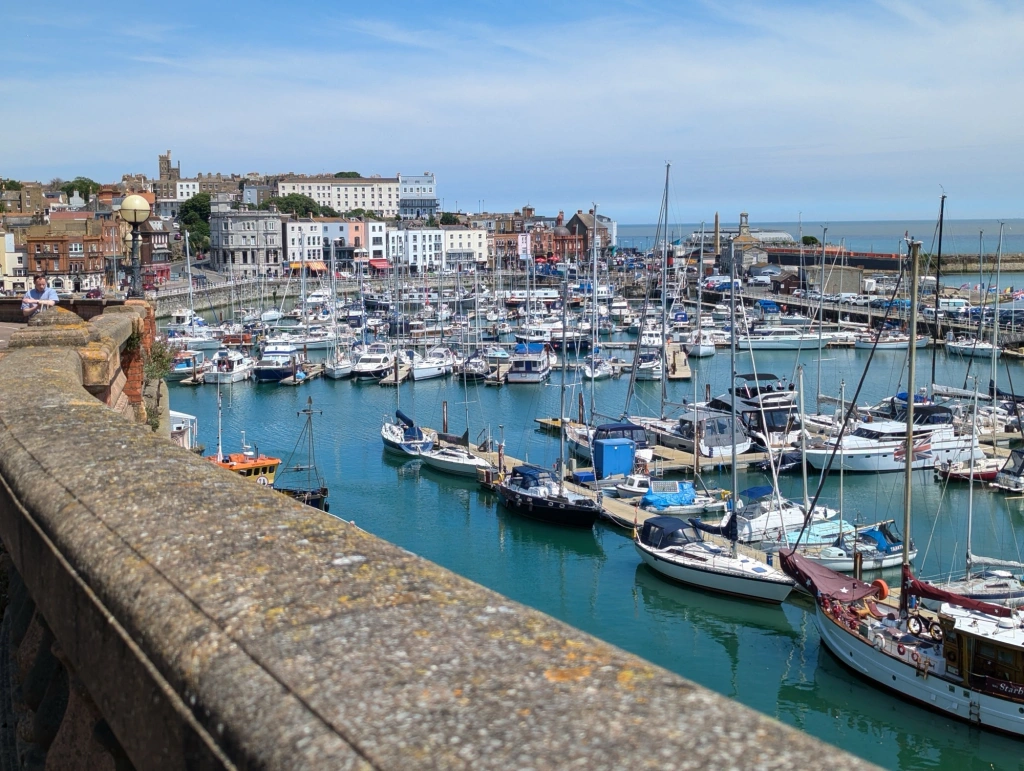Sunny Bank Mills is a former woollen mill that has found new life as a cultural and commercial destination near Leeds, West Yorkshire.
Established in 1829, the mills have been regenerated by the sixth generation of the family owners to create a wonderful blend of work, leisure and culture. Last year marked 10 years of arts and culture at Sunny Bank Mills and this continues to be celebrated through continued renovations to the mill buildings and of its industrial significance as a weaver of fine worsted cloth.
Getting there:
Sunny Bank Mills is located in Farsley near Leeds and has free parking in the Weavers’ Yard car park in the middle of the site. For visitors arriving by public transport then it’s possible to take a train from Leeds to New Pudsey railway station which is just a 15 minute walk from the mill.
History of Sunny Bank Mills:
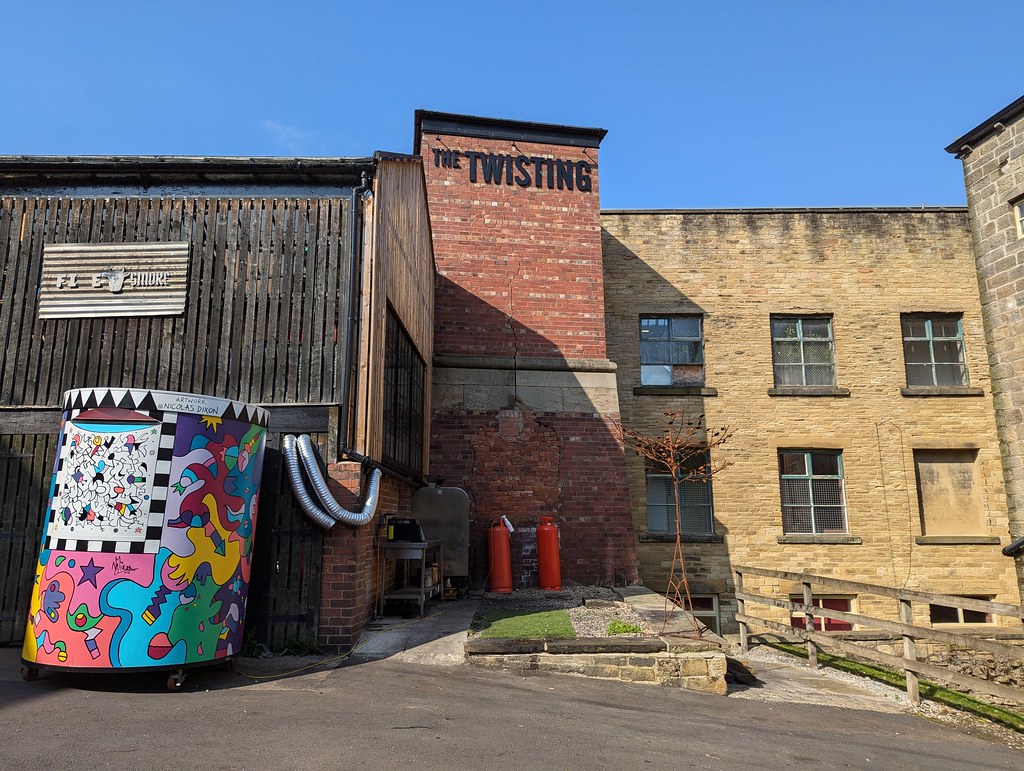
At one time, Yorkshire was the woollen capital of the world with the villages of Calverley and Farsley being the centre of the cloth trade in northern England. At its peak there were 12 mills in the local area with just one remaining today. Sunny Bank Mills was renowned as being one of the finest cloth producers in the world but sadly ceased production in 2008.
William and John Gaunt, the family mill owners were determined that this should not be the end of the story for the mill and today the site supports numerous small business including a micro brewery and gin distillery. Several businesses are still involved in textiles in one form or another, continuing the long standing tradition.
Group Tours:
Tours of the Museum & Archive can be arranged by appointment. A visit includes a tour of the Museum & Archive introducing the textile collection with information about the buildings and people who worked at Sunny Bank Mills. The informative tours last approximately one hour. Suggested donation £5.
Sunny Bank Mills certainly lived up to its name as on the afternoon of our visit the sun was shining brightly. We joined a group of 15, all sharing a mutual interest in the heritage of the old mill. As it was National Heritage weekend we were escorted around by owner William Gaunt whose family have overseen the mill for generations. The mill operated for over 180 years from 1829 until 2008.
The tour took us around parts of the mill which are yet to be developed and have remained largely untouched since the mill ceased operating and there we were able to observe old weaving looms, inspect the merino yarn that was used for spinning and imagine the conditions and noise the mill workers endured, some of them children as young as 12. We even glanced through the window of the Chief Engineer’s office which had been left just as it was sixteen years ago.
Moving on to the Sunny Bank Mills Museum and Archive, this fascinating resource represents over 180 years of cloth production at the mills and the lives of those who worked there.
It contains more than 60,000 lengths of cloth, 80,000 fabric designs, 5,000 dye cards, 300 guard books and numerous artefacts associated with nearly 200 years of cloth production. Memorabilia includes weights and scales, historic office equipment, packaging, looms and vintage signs.
We were then taken into the Board Room and invited to sit around the oak table which is still used today and is where both the company’s growth and downturns were debated and important decisions reached.
Continuing, we were shown around Sunny Bank Mills Gallery and Gift Shop housed in the light and airy former Cloth Warehouse. This is the hub of the mill’s arts programme, spanning exhibitions, workshops, studio spaces and events. Jewellery, ceramics, books and paintings are tastefully arranged intermingled with heritage sewing machines and looms blending new and old together beautifully.
Outdoors, there’s a mill trail for children to follow around the many buildings where they can learn stories about the history of the Mills and of those who worked there. The activity encourages children to answer questions and collect the rubbings of different types of weave patterns that would have been used back when the mill was producing fine worsted cloth.
Adults can participate in creative courses that are held in the Finishing Room or attend an event in the atmospheric Old Woollen Mill. It was heartening to see that new life had been breathed into Sunny Bank and that today’s generations can both share the nostalgia of their ancestors while also creating their own wonderful memories.
The Gallery, Tea Room and Shop: are open Tuesday – Saturday, 10am – 4pm; Sunday, 12 – 4pm. The Museum & Archive: are open on Saturdays for tours, 10am-3pm (bookings via website).
Details: Sunny Bank Mills, 83-85 Town Street, Farsley, Leeds , LS28 5UJ
We visited Sunny Bank Mills as part of the Heritage Days Open Weekend 2024 which offers free admission to hundreds of heritage sites across the country during September each year.

